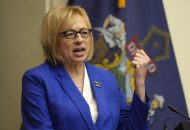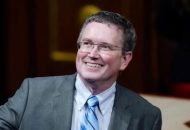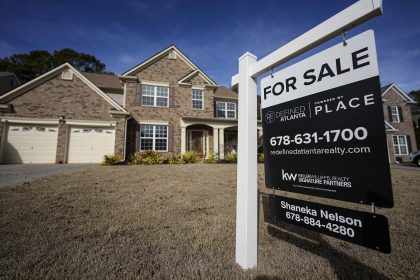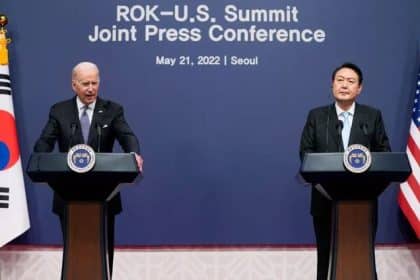Race in School: What Educators Know and Politicians Should Learn
COMMENTARY

The Kansas City School District is now fully accredited by the state, the first time since 2000. It’s been a long arduous journey and officials concede that the hill is barely crested.
On the day the announcement was made, the district’s leadership drove two hours to mid-Missouri to attend a hearing before the state board of education, to answer any final questions on achievement scores, graduation and attendance rates and the rigor of coursework.
Less than a mile away, at the Capitol building, the Missouri legislature was settling in, still in the early days of a new session.
Like virtually all of their elected peers nationwide, the senators and representatives of the Show-Me state will wrangle at some point with bills about critical race theory, how North American history is taught, along with what really irks some conservatives, the mere mention of the racist systems that created the conditions that urban districts like Kansas City struggle with today — poverty, substandard and unaffordable housing and for too long, lackluster educational opportunities.
The dichotomy of the two scenes — educators immersed in the hard work of teaching versus the politicians preaching about it — was striking.
Critical race theory-obsessed politicians are already lining up to start year two of this nonsense. Meanwhile, school districts are pushing forward, neither nostalgic nor overly concerned by those hellbent on questioning initiatives classified as “diversity, equity or inclusion.”
Like most urban and many suburban school districts, Kansas City doesn’t have the patience or the time to deal with those sorts of nonsensical, heavily politicized, and often flagrantly racist discussions.
Our past is illustrative of the ways racism and lesser political minds can meddle with the lives of children. Kansas City had one of the longest and most expensive desegregation cases in the nation’s history. In the mid-80′s, the court ordered plans to remedy the horrendous conditions that the schools had been allowed to fall into, to fix what racism broke.
The goal of the Kansas City district was always — then and now — to offer a quality public education to the students enrolled, no matter their race or ethnicity or other classification.
But at one point, luring white students to achieve a 60/40 Black/white split was part of the court ordered remedies of a series of magnet schools. For some, this led to the misconstrued and offensive idea that more white students were necessary to raise the quality of a predominantly Black district.
Remember, Brown vs. the Topeka Board of Education found that segregated schools were inherently unequal. The landmark opinion was crafted with the acknowledgment that racism was so baked into America, housing patterns and practices, that segregated meant unequal. That does not mean that white students are somehow the special sauce for people of color to achieve or to fix the Kansas City school district.
Quality schools was and remains the goal, a more balanced diversity was merely a method.
The desegregation case, old attitudes about race and the district, long predate Kansas City Superintendent Mark Bedell.
Bedell has the distinction of being the longest-serving superintendent in more than 50 years, with more than five years under his belt. Lasting sentiments, however, loom large. Especially in a politically polarized environment.
Bedell’s nothing but incredibly honest.
“We can’t stay accredited on the path that we’re on right now,” Bedell said, calling the district “antiquated, outdated and too rigid.”
Part of the problem, he said, was the district’s lack of agility which was revealed by COVID-19.
Kansas City isn’t alone here. A truth being laid bare by the latest wave of Omicron. The lack of substitute teachers, struggles around remote learning, and even masking are not simple to navigate.
But beyond Covid, Bedell also went where legislators love to trample.
“Social justice issues will be at the forefront of everything that we do,” Bedell said. He added that the district will “continue to fight against gender inequities, socio-economic inequities and racial inequities.”
To not pay attention to those factors would be a disservice to his students, who are predominantly of color. Bedell doesn’t have the luxury of pretending that economic instability of parents, a lack of affordable housing, and a host of other problems has no effect on student achievement. To deny that truth and not address it in programming, would put the district’s new accreditation at risk.
And yet, this is exactly where errant politicians tend to pounce.
Legislators assume, often wrongly, that most parents in districts on the edges of larger cities don’t want diversity and that it doesn’t already exist there.
According to the National Center for Education Statistics, Latino students in public schools grew from 22% to 27% of the total enrolled between 2009 and 2018.
Black student population in the nation’s public schools dropped from 17% to 15%. Asian student enrollment stayed at about 5%, while students who were two or more races grew from 1% to 4%.
And white students? Their population decreased from 54% to 47%.
These trajectories will continue and perhaps even speed up. Stated more simply; white public school students have been outnumbered by students of color and those who are multiracial for about the last five years.
School districts, whether they are urban or suburban, know this.
It’s one reason that gifted educational leaders like Bedell testified to legislatures nationwide last year, pushing back against the idea that learning the history of slavery or past racism can make white students feel bad.
The future of the nation looks more like Kansas City’s diverse student population, including refugees and immigrants, than not.
He was speaking to a local audience, but other remarks at the accreditation ceremonies could well serve for the nation also: “A strong, vibrant, robust school district in the urban sector bodes well for this whole city,” Bedell said. “And we don’t have time to fight against each other.”
(Readers can reach Mary Sanchez at [email protected] and follow her on Twitter @msanchezcolumn.)
©2022 Mary Sanchez. Distributed by Tribune Content Agency, LLC.
























